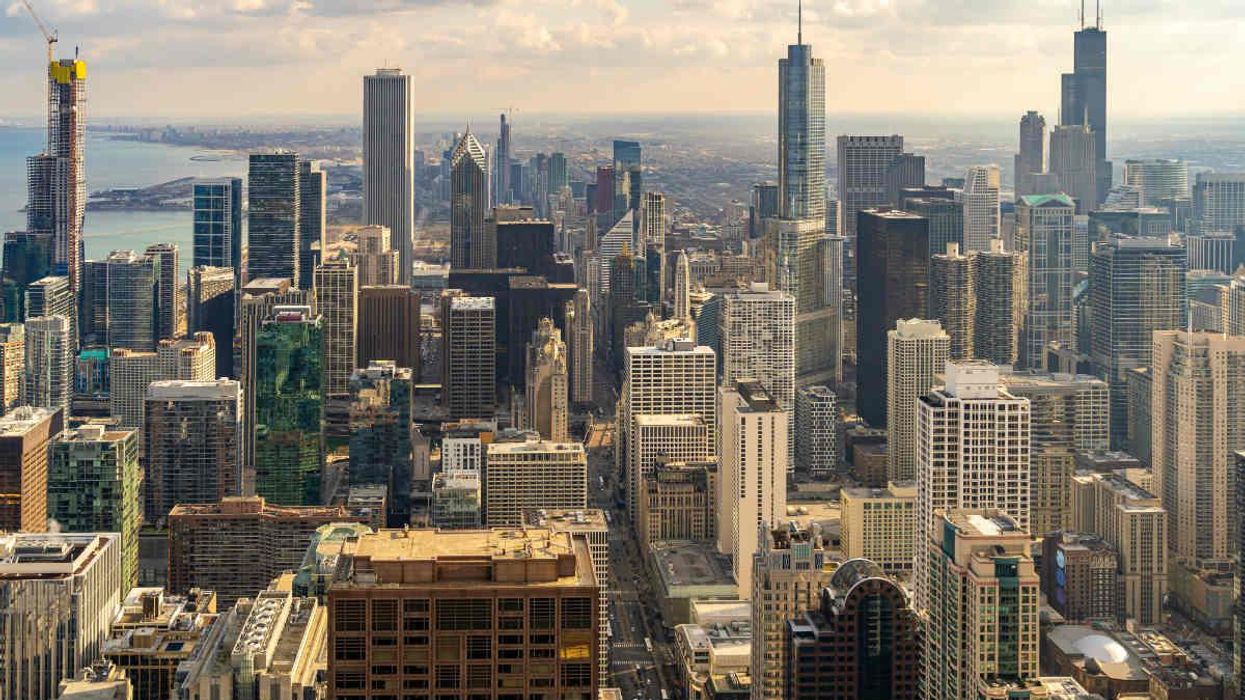
vichie81/Getty Images

When Republicans were squandering their trifecta control to pass weak-on-crime legislation in 2018, I warned at the time that those locked up in federal prison on drug charges were mainly gang members responsible for much worse crimes. Now some of the worst gang members in the history of Chicago are applying for early release under the GOP-passed First Step Act. While some of them have been denied by judges, leaving this decision as a crapshoot in the hands of liberal judges is a dangerous game.
Over the July 4 weekend, 22 people were killed and 90 wounded in Chicago's summer of violence. One 20-year-old college student was killed by a stray bullet that smashed through a window while he was sitting on a train. The people responsible for this carnage are mainly those who fit the profile of gang members locked up on RICO or drug charges in federal prison, like former Latin Kings leader Gustavo Colon.
Federal prosecutors don't go after "first-time, nonviolent, low-level" offenders; they go after people like Gustavo Colon. Colon was sentenced to life in federal prison 21 years ago for running a multimillion-dollar narcotics operation. While that is certainly not a low-level drug charge, some might believe that life in prison is too harsh for any drug crime. But that's not really why he was given life in prison; the drug laws were just used as prosecutorial tools.
As WGN-TV reports, Colon served 25 years in state prison for the 1971 murder of Glenn Burr when he was a teen gang member. He was also accused of putting a gun to a girl's head during the gang attack, but the gun failed to fire. "Far from displaying any reluctance or visible effects of intimidation, the defendant fairly reveled in the execution of his victim," the Illinois Appellate Court would later say of Colon's actions. "He fired repeatedly into the body of [the victim], and then casually held the gun to the head of [the young woman], who was spared only because the killer's earlier zeal had emptied the weapon."
While he was in state prison, the feds saw that Colon had risen to the rank of "corona" in the violent Latin Kings and was calling all the hits and murders from behind bars. Of course, he only served 25 years after being sentenced to 30-60 years, and the feds realized in 1997 that they must do something to keep him off the streets. So they convicted him on 20 counts of running a drug operation, and he was sentenced to life.
Fast-forward to this year, and his lawyer filed a motion to have him released under the 2018 bill signed by Trump. "Mr. Colon absolutely deserves this opportunity to finally be out and be with his family and be free after all these years in custody," said Colon's attorney, Gal Pissetzky. "And let us not forget that the crime that he stands convicted of is a drug offense, nothing more or nothing less."
That is the old trick of defense attorneys to obscure and limit the public threat of their clients to merely the pled-down charges of the previous conviction. In reality, the reason why cities like New York and Chicago are like shooting galleries is because of gang bosses like Colon who are now being released or were never even initially locked up, whereas 20 years ago they were taken off the streets. The lawyer argues that he has taken classes in prison and that somehow that means he is not a public threat. To the extent the prison curriculum didn't already consist of things like critical race theory, the First Step Act was so vague that it allowed any "productive activity," defined as a "group or individual activity that is designed to allow prisoners determined as having a low or no risk of recidivating to remain productive," to count as a prerequisite to an application for early release.
Obviously, application for early release doesn't guarantee that Colon will be granted it. Thankfully, a judge recently denied the application of Larry Hoover, a co-founder and former chairman of the Gangster Disciples, calling him "one of the most notorious criminals in Illinois history."
However, this should serve as a reminder as to the types of people serving long sentences in federal prison. And with increasingly more liberal judges, many of them will be released under the First Step Act. According to a 2020 analysis by the Chicago Sun-Times, judges are signing off on the release of career criminals, including top gang leaders, much to the consternation of local prosecutors who are at their wits' end trying to stem the tide of gun violence.
The Sun-Times analyzed 200 cases of early release in Chicago under the First Step Act and found that "more than 60 percent" of those who applied were granted sentence reductions by judges, "including some of the nation's most notorious criminals." At that point in 2020, 75 applications for sentence reduction were granted, 45 denied, and the rest are still pending. As I warned at the time, counting on judges to keep criminals locked up defeats the entire purpose of the mandatory minimums. In the 1960s and 1970s, liberal judges set criminals free left and right, which led Reagan to go on a crusade for tougher sentencing laws.
Daniel Horowitz
Blaze Podcast Host